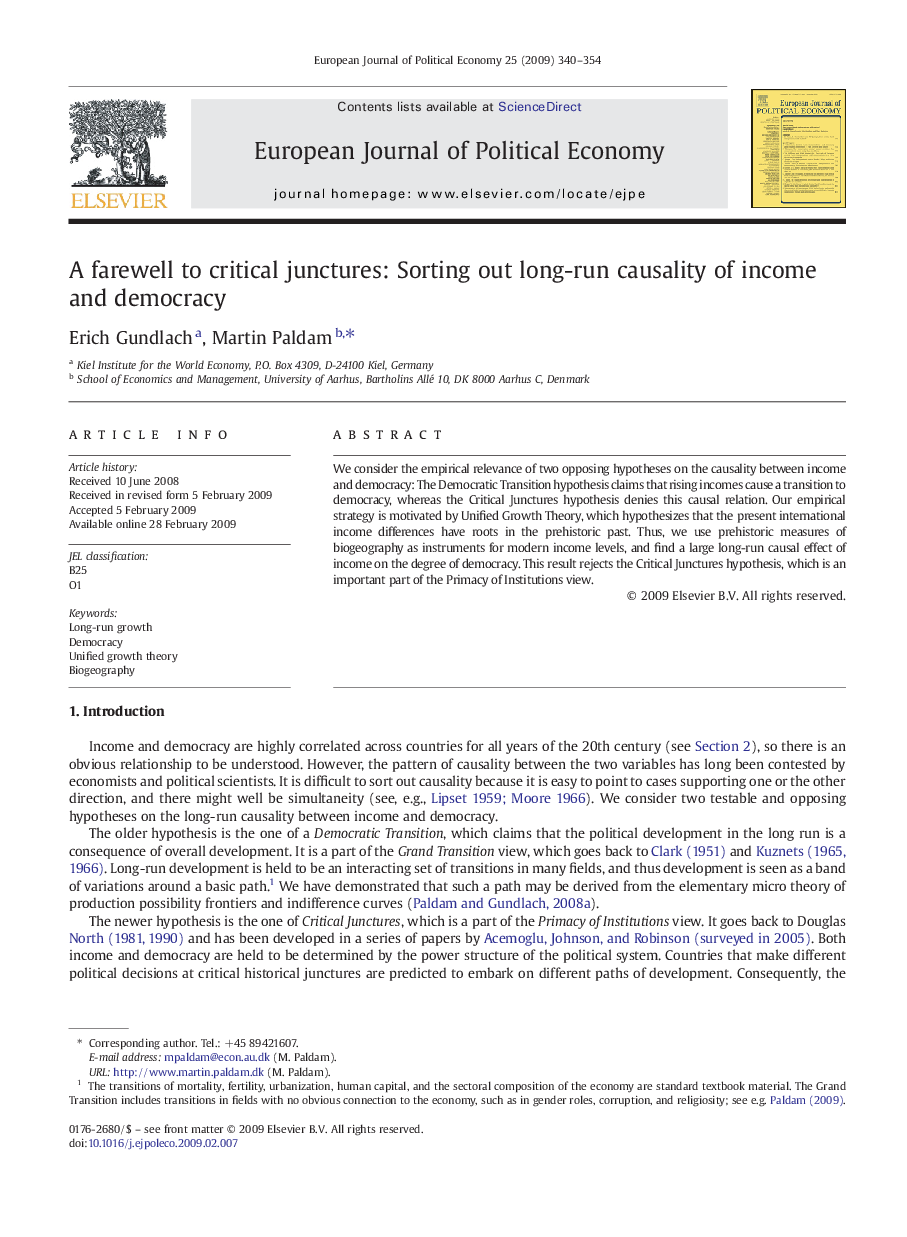| Article ID | Journal | Published Year | Pages | File Type |
|---|---|---|---|---|
| 5068546 | European Journal of Political Economy | 2009 | 15 Pages |
Abstract
We consider the empirical relevance of two opposing hypotheses on the causality between income and democracy: The Democratic Transition hypothesis claims that rising incomes cause a transition to democracy, whereas the Critical Junctures hypothesis denies this causal relation. Our empirical strategy is motivated by Unified Growth Theory, which hypothesizes that the present international income differences have roots in the prehistoric past. Thus, we use prehistoric measures of biogeography as instruments for modern income levels, and find a large long-run causal effect of income on the degree of democracy. This result rejects the Critical Junctures hypothesis, which is an important part of the Primacy of Institutions view.
Related Topics
Social Sciences and Humanities
Economics, Econometrics and Finance
Economics and Econometrics
Authors
Erich Gundlach, Martin Paldam,
